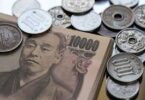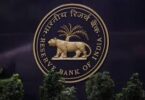NEW YORK (AP): Wall Street edged lower before the market opened on Friday following declines in Europe as oil prices hovered above $100 per barrel.
S&P 500 futures fell 0.7% and the Dow industrials slipped 0.6% as investors weighed an intensifying war in Ukraine, rising interest rates and surging COVID-19 cases in China and Europe.
Ukrainian President Volodymyr Zelenskyy called for more help for his country after days of bombardment of civilian sites in multiple cities.
President Joe Biden on Friday will speak with Chinese President Xi Jinping about “managing the competition between our two countries as well as Russia’s war against Ukraine and other issues of mutual concern,” the White House said.
In midday trading, Germany’s DAX slipped 1.7%, the CAC 40 in Paris lost 1.5% and Britain’s FTSE 100 lost 0.8%.
Wrapping up a two-day meeting, the Bank of Japan opted to keep its monetary policy unchanged, with its benchmark interest rate at minus 0.1%. Japan’s central bank has been keeping interest rates ultra low and pumping tens of billions of dollars into the world’s third largest economy for years, trying to spur faster growth.
Tokyo’s Nikkei 225 index rose 0.7% to 26,827.43 and the S&P/ASX 200 in Sydney gained 0.6%, to 7,294.40.
Hong Kong’s Hang Seng slipped 0.4% to 21,412,40 after barreling higher for two days after Chinese leaders promised to provide more support for the economy and markets, suggesting Beijing might temper its crackdowns on technology and real estate companies.
The Shanghai Composite index added 1.1% to 3,251.07.
Thursday on Wall Street, the S&P 500 climbed 1.2%, while the Dow Jones Industrial Average added 1.2% and the tech-heavy Nasdaq rose 1.3%. It is on pace for its biggest weekly gain in more than a year.
Smaller company stocks outpaced the broader market. The Russell 2000 index surged 1.7%.
Big swings in markets have become the norm as investors struggle to handicap what will happen to the economy and the world’s already high inflation because of Russia’s invasion of Ukraine, higher interest rates from central banks around the world and renewed COVID-19 worries in various hotspots.
Wall Street’s latest gains came after the Federal Reserve raised its key interest rate Wednesday for the first time since 2018, something Wall Street had been expecting for months.
A barrel of U.S. crude oil gained $1.02 to $104 per barrel in electronic trading on the New York Mercantile Exchange. It jumped 8.4% on Thursday to settle at $102.98.
Brent crude, the international pricing standard, added 76 cents to $107.40 per barrel in London. It leaped 8.8% to settle at $106.64 per barrel the day before.
Prices have been careening on doubts over both supplies of and demand for oil. After briefly topping $130 early last week, a barrel of U.S. crude fell to nearly $94 a barrel on Wednesday.
But reports of a sale of Russian crude oil to India and apparent setbacks in peace talks between Ukraine and Russia have renewed concern over possible shortfalls in supplies.
Asked about the reports India was buying oil from Russia at a discounted price, India’s External Affairs Ministry spokesman Arindam Bagchi did not directly confirm or deny them.
“India imports most of its oil requirements,” Bagchi said. “We are exploring all possibilities in the global energy market. I don’t think Russia has been a major oil supplier to India.”
He also noted that European countries are importing oil from Russia.
Dribbles of news about the state of negotiations between Russia and Ukraine have caused many of the sharp reversals. So too recently have worries about economic shutdowns in China because of surges in COVID-19 infections, which could hit demand for energy.
On Thursday, the Chinese government said companies in Shenzhen, a major business center, will be allowed to reopen while efforts to contain coronavirus outbreaks progress. Their earlier closures had rattled financial markets.
A wave of better-than-expected reports on the U.S. economy Thursday may also have helped markets. Fewer workers applied for unemployment claims last week, and builders broke ground on more homes last month than economists expected.
In other trading, the yield on the 10-year Treasury note fell to 2.14% from 2.20% late Thursday.
The dollar rose to 119.04 Japanese yen from 118.60 yen. The euro fell to $1.1040 from $1.1092.






